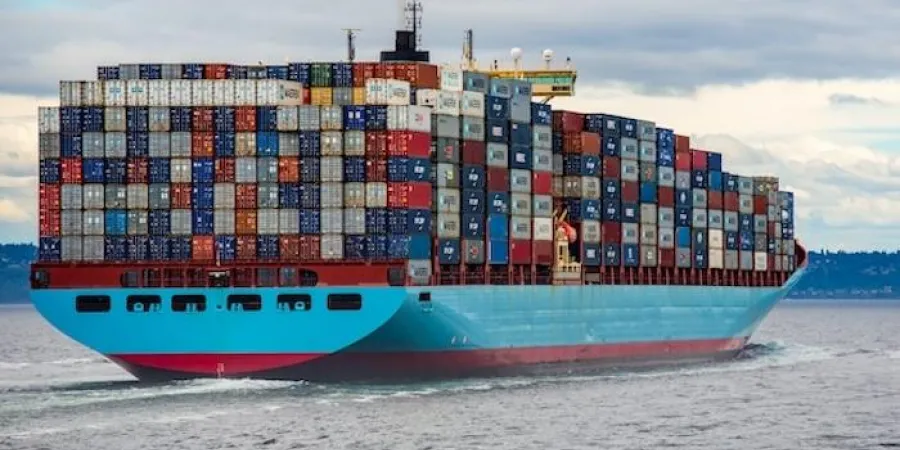Analysis | The Houthis Are Successful in Harming the Israeli Economy
Zim announced that it will change its shipping routes from the Far East to Israel due to the heightened maritime security situation, which will cause delays and disruptions
Ami Rojkes Dombe
| 30/11/2023
The Israeli cargo shipping company Zim announced that it will change its shipping routes from the Far East to Israel due to the heightened maritime security situation in the Red Sea and the Arabian Sea.
According to the official message, the company “reaffirmed today its continued commitment to serve the East Mediterranean and Israeli ports. Operations to and from these ports will be maintained with the highest regard for safety protocols which are essential to safeguarding the interests of all stakeholders.
“In light of the threat to the safe transit of global trade in the Arabian and Red Seas, ZIM is taking temporary proactive measures to ensure the safety of its crews, vessels, and customers' cargo by re-routing some of its vessels. As a result of these measures, longer transit times in the relevant ZIM services are anticipated, though every effort is being made to minimize disruptions.”
Globes journalist Dubi Ben-Gedalyahu wrote that "the implication is an addition of up to 18 days to the shipping time. Stakeholders in the automotive industry, who regularly use Zim's car transportation services from China, Japan, and Korea, told Globes that the significance of such prolonged delays if indeed implemented, is almost a doubling of the regular shipping time to Israel.
Another publication on the Port2Port website adds that "The giant Danish shipping company, Maersk, has become the latest name to announce that its two stranded ships, Lisa and Maersk Pagani, will depart from their route, as their cargoes were unloaded in the ports of the United Arab Emirates, causing a delay of more than a week for the cargo owners.
“These two ships are chartered by the XT Group, led by Udi Angel. In a message to its customers, Maersk stated that 'this decision was made with careful consideration of various factors, prioritizing the safety of the crew, equipment, and your cargo.'”
In addition to the financial loss that could be incurred by Israeli importers and the Israeli economy, Egypt is also expected to be adversely affected by the ongoing terror on the Suez Canal. This is because every ship passing through the Suez Canal pays fees to the Egyptian government. The revenues of the Suez Canal are expected to exceed the $10 billion threshold this year.
In addition to the hijacking of commercial vessels, including rumors of an attempted hijacking of a Zim ship (which ultimately did not occur) and oil tankers, the Houthis also fired ballistic missiles towards an American destroyer (USS Mason) that arrived to assist a tanker owned by an Israeli company. The rescue operation was successful, with five apprehended Houthi terrorists taken for investigation, and the ship continued on its way.
Nevertheless, the threat of missiles and hijackings persists, posing a continued risk to commercial shipping companies.
Zim announced that it will change its shipping routes from the Far East to Israel due to the heightened maritime security situation, which will cause delays and disruptions
The Israeli cargo shipping company Zim announced that it will change its shipping routes from the Far East to Israel due to the heightened maritime security situation in the Red Sea and the Arabian Sea.
According to the official message, the company “reaffirmed today its continued commitment to serve the East Mediterranean and Israeli ports. Operations to and from these ports will be maintained with the highest regard for safety protocols which are essential to safeguarding the interests of all stakeholders.
“In light of the threat to the safe transit of global trade in the Arabian and Red Seas, ZIM is taking temporary proactive measures to ensure the safety of its crews, vessels, and customers' cargo by re-routing some of its vessels. As a result of these measures, longer transit times in the relevant ZIM services are anticipated, though every effort is being made to minimize disruptions.”
Globes journalist Dubi Ben-Gedalyahu wrote that "the implication is an addition of up to 18 days to the shipping time. Stakeholders in the automotive industry, who regularly use Zim's car transportation services from China, Japan, and Korea, told Globes that the significance of such prolonged delays if indeed implemented, is almost a doubling of the regular shipping time to Israel.
Another publication on the Port2Port website adds that "The giant Danish shipping company, Maersk, has become the latest name to announce that its two stranded ships, Lisa and Maersk Pagani, will depart from their route, as their cargoes were unloaded in the ports of the United Arab Emirates, causing a delay of more than a week for the cargo owners.
“These two ships are chartered by the XT Group, led by Udi Angel. In a message to its customers, Maersk stated that 'this decision was made with careful consideration of various factors, prioritizing the safety of the crew, equipment, and your cargo.'”
In addition to the financial loss that could be incurred by Israeli importers and the Israeli economy, Egypt is also expected to be adversely affected by the ongoing terror on the Suez Canal. This is because every ship passing through the Suez Canal pays fees to the Egyptian government. The revenues of the Suez Canal are expected to exceed the $10 billion threshold this year.
In addition to the hijacking of commercial vessels, including rumors of an attempted hijacking of a Zim ship (which ultimately did not occur) and oil tankers, the Houthis also fired ballistic missiles towards an American destroyer (USS Mason) that arrived to assist a tanker owned by an Israeli company. The rescue operation was successful, with five apprehended Houthi terrorists taken for investigation, and the ship continued on its way.
Nevertheless, the threat of missiles and hijackings persists, posing a continued risk to commercial shipping companies.



